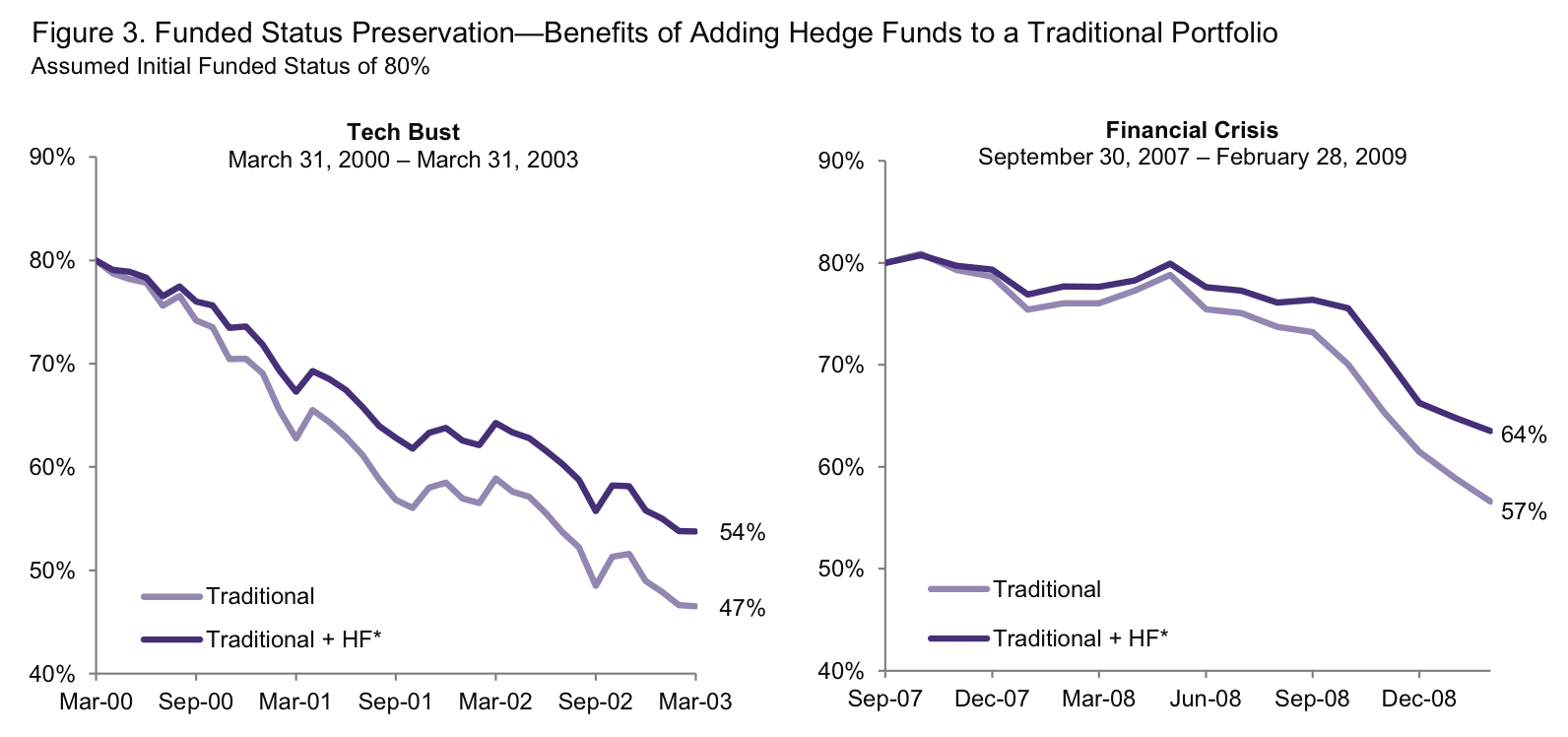Suffering from a sinking funded status? Dump traditional assets and add hedge funds to your portfolio, Cambridge Associates has argued in a report.
According to the consulting firm’s recent research, hedge funds exhibiting low equity beta and high alpha could be an attractive addition to a pension fund’s de-risking strategy.
Today’s environment is well suited for this approach, the report said, as funded status plummeted to just 80% for S&P 1500 firms as of March 2015, from a high of 93% in November 2013.
Pension liabilities have been growing faster than assets partly thanks to falling interest rates and recent changes to the mortality table.
The key to closing the funding gap while keeping plan sponsors’ risk tolerance steady is to control portfolios’ equity market exposure, Cambridge Associates added.
“Stock market drawdowns often coincide with periods of sharply declining interest rates,” the report said. “This dynamic can create ‘perfect storms’ for plan sponsors, with plan assets falling while liabilities rise.”
According to the research, diversifying one-third of the equity allocation into high conviction hedge funds during the tech bust and the most recent financial crisis could have reduced drawdowns by 7%.
 Source: Cambridge AssociatesThe
strategy could have saved a $1 billion fund $126 million during the tech bubble and
$80 million during the 2008 crisis, the paper said.
Source: Cambridge AssociatesThe
strategy could have saved a $1 billion fund $126 million during the tech bubble and
$80 million during the 2008 crisis, the paper said.
“High conviction hedge funds that generate returns from less directional strategies than long-only equities and face less interest rate risk than traditional bonds are particularly attractive,” the report said.
However, applying this strategy to your portfolio is easier said than done.
Only a small portion of hedge fund managers truly adds value. Of approximately 11,000 hedge funds in the industry worldwide, Cambridge Associates said it believes fewer “than 250 merit institutional capital.”
Even after choosing the right manager, plan sponsors must negotiate terms on fees, liquidity, transparency, and leverage, the report said.
Higher fees are warranted only if the manager generates significant net-of-fee alpha with low market beta, the firm said, and plan sponsors should not face the same fees and illiquidity for returns from leverage as those from “alpha-generative security selection.”
Related: Coming Soon to Your LDI Plan: Equities & The End of De-Risking
